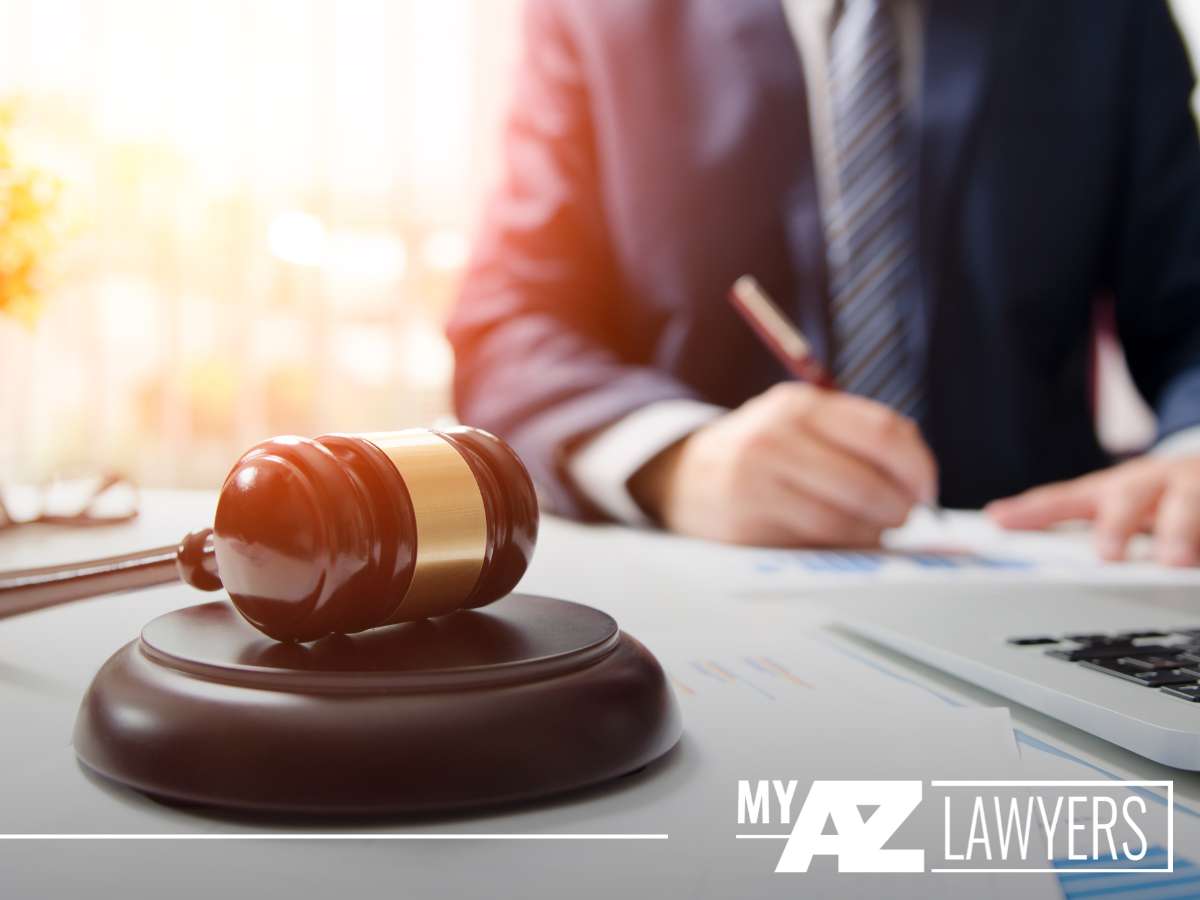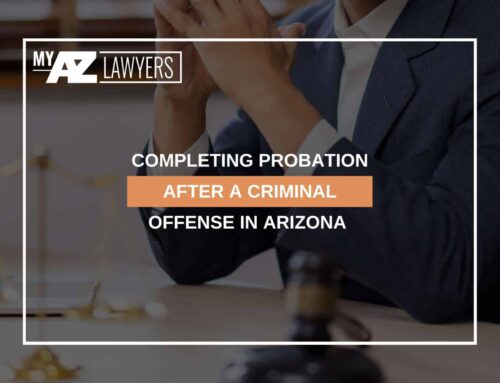Table Of Contents
Get Your Rights Restored in Arizona
Nobody wants a criminal conviction on their record. A criminal conviction can cause countless problems for the defendant for years to come, or even the rest of their life. This is true for both misdemeanor and felony offenses. A person convicted of a criminal offense in Arizona may be turned down in the future for any opportunity that requires a background check. That means it will be more difficult for a former convict to rent an apartment, find a job, be approved for a home loan, and more. The issue can be even more serious for defendants at the felony level. This is because in addition to these negative consequences after serving time in prison and paying fines, convicted felons also lose some of their civil rights. The process of restoring rights after a felony conviction can be straightforward for some defendants and much more of an uphill battle for others. If you’re seeking post-conviction relief and to have your rights restored after a conviction in Arizona, our firm may be able to assist. Our skilled criminal defense lawyers offer free consultations to get you started in the right direction for all of your needs. Get started with your free consultation by calling 480-448-9800.

Which Rights Does a Convicted Felon Lose?
A felony conviction has more grave consequences than a misdemeanor conviction because convicted felons lose some of their civil rights under the United States Constitution. The rights that a defendant convicted of a felony offense in Arizona include:
- The right to vote
- The right to serve on a jury
- The right to run for office as a government official
- The right to purchase a firearm
- The right to possess a firearm
Many people don’t realize how important their civil rights are until they lose them. Whether a former convict wants to become politically involved, engage in hunting and other outdoor activities, or simply feel equal to the people around them, restoring civil rights could be essential to becoming whole.
Automatic Restoration of Civil Rights in Tucson, Arizona
Arizona’s law for automatic restoration of civil rights after a felony conviction in Tucson is A.R.S. § 13-907. This law allows a convicted felon’s rights to automatically become restored after completing all of the penalties issued to them by the court during sentencing. A defendant can also be ordered to pay restitution, or a financial penalty meant to make the victim of the defendant’s crime whole. Some of these penalties will include incarceration, fines, and probation. However, not every felon’s conviction is eligible for automatic restoration of civil rights.
Rights are only automatically restored if the defendant doesn’t have previous felony charges on their record. The procedure for automatic rights restoration won’t occur if the defendant has more than one felony conviction. Automatic rights restoration is also only available if the defendant’s offense wasn’t considered dangerous, serious, violent, etc. If a defendant committed a crime that presents a danger to the public like kidnapping, sexual assault, robbery, etc., their rights won’t automatically be restored upon completion of their parole. It should also be noted that this mechanism only exists to restore rights like voting and serving on a jury. Restoring firearm rights is a different process that doesn’t happen automatically. This also won’t restore other rights and privileges a defendant may have lost due to their conviction. For example, driving-related offenses may require that a defendant complete traffic school, a driver’s license suspension period, and obtain an ignition interlock device and high-risk auto insurance coverage before they can regain driving privileges. Restoring civil rights won’t clear the defendant’s responsibility to complete these requirements before driving. Restoring civil rights also won’t restore hunting licensure from the Arizona Game and Fish Department lost due to a criminal conviction.
Restoring Firearm Rights
Firearm rights are separated from other civil rights when it comes to post-conviction rights restoration in Arizona. In Arizona, restoration of firearm rights is governed by A.R.S. § 13-910. This statute is relatively short and simple when compared to the rest of the statutes that make up Arizona’s laws. It bars the same dangerous and serious offenders who are ineligible for automatic civil rights restoration from firearm rights restoration. However, serious offenders have the option of applying for firearm rights restoration 10 years from the date of their absolute discharge. Defendants convicted of dangerous offenses will have their applications for firearm rights restoration denied, regardless if more than 10 years have passed since their absolute discharge.
There are special rules for a defendant convicted of a felony before they turn 18 years old. A juvenile must generally wait 2 years after their absolute discharge before applying to restore firearm rights. Unlike a felon who was convicted after reaching adulthood, dangerous and serious juvenile offenders may eventually be able to restore their firearm rights. Juveniles convicted of serious offenses as defined by A.R.S. § 13-706 or dangerous offenses as defined by A.R.S. § 13-704 must wait until they turn 30 years old before they can request that their firearm rights be restored. While this could be a 12-year gap or longer, defendants convicted of serious and dangerous felonies after their 18th birthdays don’t have this opportunity.
A convicted felon who is caught with a firearm on their person without having their firearm rights restored by the court can face serious consequences. Convicted felons are considered prohibited possessors under A.R.S. § 13-3101. Here, felons could face additional felony charges for failing to have their rights restored before obtaining a weapon. Additionally, these charges could have stricter penalties as Arizona increases sentencing guidelines for subsequent offenders. If you wish to own a firearm for self-defense after a felony conviction, it may require skilled legal guidance to restore your rights. To schedule your free consultation call 480-448-9800.
Can a Public Defender Help Me Restore My Rights in Tucson?
It can be complicated to decide which type(s) of post-conviction you should pursue after fulfilling your obligations after a felony conviction in Arizona. In addition to restoring your civil and firearm rights, you may also wish to have your record sealed, have your conviction set aside, or seek some other form of post-conviction relief from the court. Determining which forms you are eligible for and which will serve your needs the best is the first step of the process. It can take hours of self-research to replace guidance from a seasoned legal professional like those at My AZ Lawyers. Without an attorney, you will also need to draft your applications for post-conviction relief yourself. For a successful application, you will want to find and use evidence to support the arguments made in your application(s). The state does not appoint a public defender to help applicants with post-conviction relief in Arizona. Some defendants may be able to find help through legal aid or some non-profit organization, but these places often must be selective in who they accept as clients due to limited resources. An applicant who wants to feel confident in their choice of legal counsel will need to interview and hire their attorney. Contact us through our online form to schedule your free consultation or call us at 480-448-9800.
Arizona Offices:
Mesa Location:
1731 West Baseline Rd., Suite #100
Mesa, AZ 85202
Office: (480) 448-9800
Email: [email protected]
Website: https://myazlawyers.com/
Phoenix Location:
343 West Roosevelt, Suite #100
Phoenix, AZ 85003
Office: (602) 609-7000
Glendale Location:
20325 N 51st Avenue Suite #134, Building 5
Glendale, AZ 85308
Office: (602) 509-0955
Tucson Location:
2 East Congress St., Suite #900-6A
Tucson, AZ 85701
Office: (520) 441-1450
Avondale Location:
12725 W. Indian School Rd., Ste E, #101
Avondale, AZ 85392
Office: (623) 469-6603












